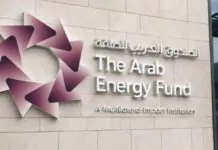Good morning ,
Former CFTC Chair Warns Digital Asset Clarity Act Could Undermine Main Markets
Former Commodity Futures Trading Commission (CFTC) Chair Timothy Massad warned lawmakers that the Digital Asset Market Clarity Act of 2025 (Clarity Act) could create more confusion than clarity while potentially undermining decades of established securities law.
In testimony before the House Financial Services Committee, Massad argued that effective digital asset legislation for market structure should follow two simple principles: “do no harm and keep it simple.”
Massad emphasized that any digital asset market structure legislation must not undermine the U.S.’s $120 trillion equity and debt markets, which he described as “the foundation of the U.S. economy and the envy of the world.” He cautioned that “legislation that rewrites the definition of a security or revises the Howey test to promote this technology can easily undermine the markets.”
Clarity Act’s Fatal Flaws
The former regulator identified several ways the Clarity Act violates his core principles:
- Unstable Decentralization Criteria
Massad criticized the bill’s excessive reliance on decentralization as a regulatory framework, calling it “unstable ground on which to build a regulatory framework.” He noted it is difficult to define and measure, may change over time, and is not necessarily the right metric for judging innovation. - Regulatory Gaps Persist
The Act fails to address the main oversight gap it claims to solve. While it introduces regulation for “digital commodities,” its definition would apply to only a handful of tokens. Exchanges like Coinbase, Kraken, and Gemini list dozens to hundreds of tokens, many of which would still lack meaningful oversight. - Regulatory Arbitrage Risk
At 236 pages long with dense and complex definitions, the legislation opens doors for regulatory loopholes. Massad warned that “many, many lawyers will spend huge amounts of time developing ways to exploit this legislation.” He urged that legislation should focus on high-level principles and leave detailed implementation to experts.
A Simpler Path Forward
Instead of the Clarity Act’s approach, Massad renewed his proposal for a joint Self-Regulatory Organization (SRO) overseen by both the SEC and CFTC. This entity would regulate “any trading platform or other intermediary transacting in Bitcoin or Ether,” covering all digital tokens traded on those platforms.
The proposed SRO would be:
- Tightly supervised by the SEC and CFTC
- Governed independently, with board members and rules approved by the agencies
- Focused on governance, customer protection, conflicts of interest, and anti-fraud
Massad contended this model would deliver comprehensive investor protection quickly by targeting the centralized platforms that dominate crypto spot markets—all without the definitional chaos embedded in the Clarity Act.
@ Newshounds News™
Source: Ledger Insights
~~~~~~~~~
BRICS: Oil Giant Eyes Chinese Yuan Bonds, Ignores US Dollar Assets
In a breakthrough shift in the financial sector, the BRICS alliance has paved the way for other countries and leading business institutions to look beyond US dollar-based Treasuries and bonds and buy other Asian-based financial assets.
Kazakhstan, which participates in BRICS Outreach formats, has allowed its state-run oil and gas company KazMunayGas to eye Chinese yuan bonds, leaving aside the US dollar-based bonds and Treasuries for the first time.
The Chinese yuan bonds are cheaper debt compared to the US-denominated financial assets such as Treasuries and bonds. KazMunayGas is also exploring opportunities to issue debt in Arab countries and buy their bonds in a first-of-a-kind development.
The credit for this new shift goes to the BRICS bloc as they’re convincing firms that there are more options to explore such as the Chinese yuan than just buying US dollar-based assets.
BRICS: Kazakhstan’s Oil & Gas Firm Eyes Chinese Yuan Bonds, Sidelining US Dollar Assets
KazMunayGas is looking to explore cheaper borrowing terms and usher the oil and gas industry into a new era. Reducing US dollar-denominated assets was the primary goal of BRICS and now other countries are following suit.
“We looked at all options. Currently, there is a possibility to sell dim sum, and panda bonds,” said CEO Askhat Khassenov to Bloomberg. “Dim sum and panda bonds offer rather good conditions,” said Khassenov.
For the uninitiated, dim sum bonds refer to notes denominated in the offshore Chinese yuan. It mainly trades outside mainland China. In addition, panda bonds are yuan debt sold by foreign borrowers in China’s domestic market. It might not take much time before state-run oil firms from BRICS countries start eyeing Chinese yuan bonds.
The BRICS development will add a dent in the US dollar-denominated assets while Chinese yuan bonds go for the win. This is the first such instance where the yuan assets are being considered—and might not be the last either.
@ Newshounds News™
Source: Watcher Guru
~~~~~~~~~
Seeds of Wisdom Team RV Currency Facts Youtube and Rumble
Newshound’s News Telegram Room Link
Follow the Roadmap
Follow the Timeline
Seeds of Wisdom Team™ Website






